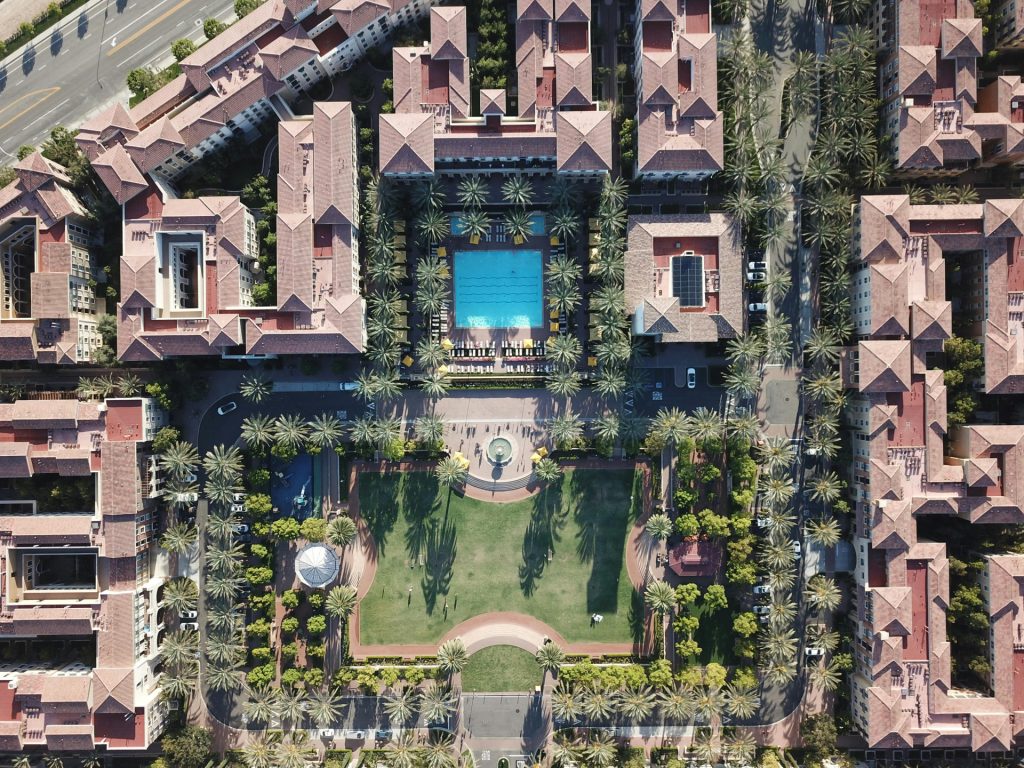There are a lot deceits and swindling going on in the real estate sector. Whether you are a seasoned investor or you are just starting out, understanding the ins and outs of property investment is essential. In this guide, we have broken down the Frequently Asked Questions about investing in properties in Nigeria and also explained things you need to know to avoid pitfalls like: encumbered properties, disputed properties and other properties that are not in dispute but are not for sale. This is towards helping you to maximize your investments and have good returns on your investments.
You are welcome to EncumberedProperties.com, where we pull back the curtain on real estate secrets and empower you to make savvy investment decisions. I’m Madueke Enwere—a Property Lawyer, Real Estate Investor, and, by God’s grace, the founder of EncumberedProperties.com. Our mission is to engineer a real estate sector that is scam-free by sharing with you information that will help you steer clear of properties that might turn out to be hidden landmines.
In this article, we are diving into the hottest topics for real estate investors in Nigeria:
FREQUENTLY ASKED QUESTIONS (FAQs) ABOUT REAL ESTATE INVESTING IN NIGERIA:
Why Nigerian Real Estate?
Nigeria’s real estate market offers tremendous opportunities—from flipping properties and land banking to investing in residential and commercial developments. With rapid urbanization and a growing population of over 235 million people (according to the February 2025 United Nations and Worldometer reports). Therefore, the potential for high returns is significant. But with opportunity comes risk, and that is where having the right knowledge makes all the difference.
The first frequently asked question about real estate investing in Nigeria we will discuss is:
1. What Type Of Real Estate Investment Is Most Profitable?
From flipping and land banking to residential properties, commercial real estate, and affordable housing units, there are multiple pathways to profitability. Each option comes with its own set of opportunities and challenges, so your choice should align with your goals and risk tolerance. For detailed explanation on types of real estate investing, watch my YouTube video on that by clicking on the link here YouTube
2. When Is The Best Time To Buy Property in Nigeria?
The answer is simple: Now! The truth is that no matter the rate of inflation, the rate of property appreciation is always ahead of inflation. Property purchase does not only conserve and preserve your invested capital, it is a buffer against inflation. Saving your money in the bank erodes it. The property you defer buying today, would not sale the same price in six months time. An elderly investor who counseled me to go into properties when I was 21 years old told me about a property he bought in Kano, northern Nigeria for 5 million naira and within the same year, he sold it for 55 million naira.
This type of gain does not occur in all cases but the truth is that you can never be at loss buying any property except you bought into encumbered or disputed properties.
3. How Much Do I Need To Start Investing?
You don’t have to break the bank to start investing. You can begin your real estate journey with virtually any amount. Consider starting small by:
- Purchasing more affordable lands,
- Joining cooperatives (I am coming up soon with a detailed video on how you can buy properties with zero capital through cooperatives. In fact, the first real estate investment where I made a lot of profit was a property I bought through cooperative, with zero personal capital. Watch out for our YouTube channel at: @encumberedproperties for when the video will be posted by subscribing to the channel),
- Forming joint ventures: two or three friends or business partners can agree, pool their resources together and start off!
- Investing in REITs (Real Estate Investment Trusts): Here you buy interest in properties same way you buy shares and dividends are paid to you. You can start with as small as five thousand naira.
4. What Else Do I Need To Get Started?
Beyond capital, all you really need is determination. With the right mindset, even modest beginnings can blossom into lucrative opportunities. All you need is the will and determination to succeed. With the right mindset and guidance which we regularly provide across all the Encumbered Properties platforms, you can navigate the complexities of the market.
5. Where Can I Find Reliable Information To Enable Me Avoid Scams?
In a market where properties can sometimes be mis represented, staying informed is your best defense against scams. Look for trusted sources and experts who provide clear, undiluted updates. This knowledge not only protects you but also empowers you to make smarter decisions. We are here to provide you with accurate insights and trust worthy advice at encumberedproperties.com. At the website and across all our social media handles, we provide you daily with details of properties that are in dispute, encumbered or un-encumbered/ undisputed but are not for sale.
6. Can Foreigners Buy and Own Properties in Nigeria?
Yes, legitimate immigrants and even foreigners not residing in Nigeria can acquire properties in Nigeria, either in partnership with you, as companies or as private foreign nationals.
7. Is It Necessary To Involve A Lawyer In Property Transactions?
Absence of a lawyer does not necessarily, invalid a land transaction. However, the law generally stipulates that the sale agreement (properly called deed of transfer, assignment, or power of attorney) transferring any interest in land has to be prepared by a lawyer. You jeopardize yourself if a contrary claim over the property arises.
8. How Long Does It Take To Conclude On Property Purchase In Nigeria?
This depends on so many factors. If the property details are already documented in the land bureau of the state where it is situated, then you easily take it up from there. If the property has not been documented anywhere, for instance, lands in the possession of native and customary lands, your investigation has to be extensive: locals, family heads, village heads and traditional rulers have to be consulted towards making sure you are buying from the right person/family.
And if the property has been flagged at encumberedproperties.com as either encumbered, disputed or undisputed but not for sale, that makes it easier for you. All you need to do is to take the number of the person who caveat the property at the website and contact him or her for further verifications.
Generally, the length it takes investigating the root of title of each property varies from one property to the other. I must sound a note of warning here: always find another way of verifying any information you get from any land registry in Nigeria. I give you a practical example, in Imo State, some federal government properties are currently being allocated/sold to innocent buyers by the state government without the buyers/allotters knowing that the properties belong to the federal government.
The funny thing is that if you go to the Imo State Land Bureau, the properties in question will be reading Imo State Government properties. Very soon I will be making video on this which will be posted on our YouTube channel: @encumberedproperties and the further details of the properties enlisted on our website at encumberedproperties.com so that the members of the public can take note of those properties and keep away from investing in them or buying them from anybody whatsoever.
9. How Can I Verify The Authenticity Of The Property I Want To Buy?
Of course, make your inquiries at the relevant land bureaus and also search the encumberedproperties.com. Conduct background checks on the vendor within the locality where the vendor resides. The integrity of the seller is important towards making sure he or she is a person of integrity.
10. Understanding The Jargons:
Excision:
A term used to explain a property title if it is a property that was released to a people by the government. That is often the case when government takes over a land for public use and releases back a portion of it to the natives to whom it originally belonged to.
Land Titles:
In simple terms, it is a means of proving ownership. Examples are the Certificate of Occupancy (C of O), the Statutory/Customary Right of Occupancies (R of O), excision, and the deed of assignment, etc
Survey Plan:
This is a graphical representation of a property’s location, size, and boundaries.
11. What are the Red Flags that a Property Sale is a Scam or Fraudulent?
Here are some red flags to keep in mind. Watch out for them:
- Absence of title deeds (land titles);
- Pressure to pay immediately;
- Absence of physical inspection;
- Absence of verifications from land registry and encumberedproperties.com
12. Is It Safe To Buy Off Plan Properties In Nigeria?
Off-Plan can be risky with a developer that has no track record at all or from a person / firm that you cannot verify their integrity. You can consider any of the few developers that have proven to be committed to their words. Some of them are mentioned in this video: YouTube
13. What Documents Should I Expect To Receive After Purchasing A Property?
- Payment receipt(s), if you paid more than once;
- Contract of sale;
- Deed of Assignment;
- Survey Plan;
- The applicable title document: C of O; R of O; Proof of Excision; Governor’s Consent
and any other documents that establish the title of previous owners.

14. What Is The Meaning Of Encumbrance In Real Estate?
It is any lien or liability that could limit the use or transfer ability of a property.
This includes mortgage, collateral, charge, claim or any other covenant running with the land.
Dispute over title or possession is also a form of encumbrance and a major encumbrance for that matter.
15. What Is Property Zoning And Why Does It Matter?
Property Zoning regulates Land Use.
For instance: We have Residential, Industrial, Commercial and Agricultural zones.
Why it is important is because if you understand it, and a realtor takes you to industrial zone and starts marketing a residential land to you, you can easily spot it as a red flag.
The knowledge of it can really help you avoid being scammed.
16. How Do I Register My Property After Purchase?
Apply through the relevant Land Registry, attaching:
- Deed of Assignment,
- Survey Plan,
- Receipts of the applicable application fees,
And any other documents relevant to the property.
17. What Fees Are Applicable In Property Registration And Governor’s Consent?
- Stamp duty,
- Capital gains tax,
- Consent fees,
- Application and registration fees
The amount varies from state to state. A property lawyer will guide you. You can as well walk into the land registry yourself and ask.
18. Is There Any Data Base Anywhere That Keeps Record Of Properties That Are In dispute, Encumbered And Properties That Are Generally Not For Sale? So That Public Can Learn Of Them And Avoid Them?
Yes, encumberedproperties.com is the only such website. At encumberedproperties.com, information of properties that are generally not for sale are displayed there.
Conclusion
Investing in Nigerian real estate can be incredibly rewarding but only if you’re well-informed and cautious. By understanding the market, recognizing the red flags, and arming yourself with reliable information, you can transform challenges into opportunities. Stay tuned for more insights and tips, and let us navigate the real estate landscape together.
Happy investing!
Watch the complete video of these questions in this article being extensively answered and explained for better understanding by clicking on the video below, or Visit our YouTube channel through the link below in this article to watch the video and many more informative piece to keep you scam free on real estate investing in Nigeria.
While you watch out for our next article, follow us on:
Facebook at: Encumbered Properties Limited


[…] Read the Full FAQ Guide Here by clicking on this link. […]